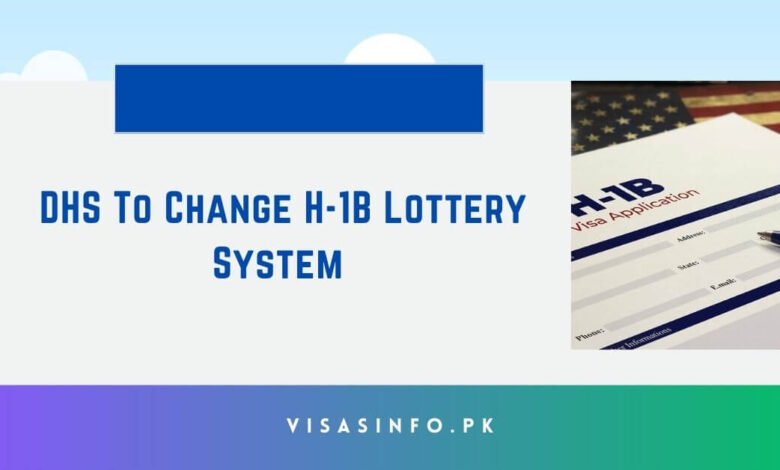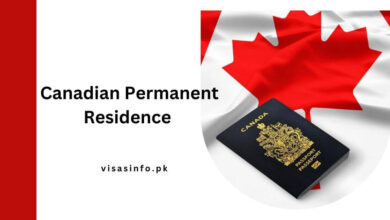DHS To Change H-1B Lottery System in 2024

The H-1B Lottery system will undergo a modification on Friday, February 2, 2024. The US Department of Homeland Security will publish a final regulation in the Federal Register to enhance the impartiality and integrity of the H-1B registration process. The H-1B registration process is evolving and will not increase the likelihood of a foreign national being selected in the H-1B Lottery, regardless of the number of H-1B registrations submitted.
The final also rule will include a few additional modifications to the program. The implementation of this regulation will occur. For the fiscal year 2025, H-1B registration will be available.
Summary of Key Provisions in Final Rule
1. Single Entry in Lottery
The registration procedure will operate in the same manner as it has in previous years. For each cap-subject H1B candidate that their organization intends to sponsor in the forthcoming fiscal year, registrants will still be required to submit individual electronic registrations.
A single US employer may submit registrations on behalf of multiple individuals, as was previously the case. The foreign national will be permitted to participate in the lottery system only once under the new rule, regardless of the number of registrations submitted for that individual.
2. Valid Passport or Travel Document Required
The new lottery mechanism is beneficiary-centric and is associated with the foreign national’s passport or travel document. To prevent the occurrence of multiple entries into the lottery, all foreign nationals must possess a valid passport or travel document.
Furthermore, the final rule prohibits an H-1B registration beneficiary from having multiple passports or travel documents registered under their name.
3. All Registrants Notified if Beneficiary is Selected
If a beneficiary is selected, all registrants who submitted a registration for that beneficiary will receive notification. Subsequently, each of those registrants will have the opportunity to submit an H1B petition for the beneficiary during the filing window.
4. Flexible Start Date
Even though the petitioner is required to request an October 1 start date for choices made in the lottery’s first round, the final rule also permits the petitioner to be flexible in their suggested start date. Requests for any start date of the applicable fiscal year, extending up to six months from the date of the petition’s submission, are now routinely permitted.
5. No Fee Increase Yet
The registration filing fee of $10 will remain unchanged for the H-1B registration period in FY 2025. The DHS will increase the registration fee for H-1B laborers, as well as nearly all other filing fees, in April 2024. Registration fees for each registration will amount to $215 in the upcoming year.
USCIS Announces Final Rule for FY 2025 – USCIS H-1B Program
USCIS has implemented enhanced Integrity procedures for the H-1B program. The H1B registration process has been enhanced by the publication of a final regulation by USCIS to reduce the likelihood of fraud and enhance the integrity of the process. As a result, by reducing the likelihood of systemic manipulation and ensuring that each beneficiary has an equal opportunity to be selected, regardless of the number of registrations submitted on their behalf,
In addition to the online filing option for the form I-129 petition for a non-immigrant worker and the form I-907 request for premium processing service for H1B petitioners, USCIS is also disclosing the dates of the commencing registration period for the fiscal year 2025 H-1B cap.
According to USCIS Director Ur Jaddou, the agency is perpetually in pursuit of strategies to fortify integrity, mitigate the risk of fraud, and improve and expedite its application processes. The H1B process will be wholly electronic, from registration (if applicable) to the final determination and transmission of petitions that are granted to the Department of State, as a result of these improvements. This should result in a more equitable process for both petitioners and beneficiaries in the selection of H1B visas.
H-1B Registration Final Rule
This final rule also includes provisions that will codify start date flexibility for petitions subject to the congressionally mandated H-1B cap, implement additional registration process integrity safeguards, and establish a beneficiary-centric selection process for companies that are registering.
The Beneficiary Centric Process will identify distinctive beneficiaries, as opposed to selecting registrations. The objective of this novel procedure is to mitigate the risk of fraud and ensure that each beneficiary has an equal opportunity to be selected, irrespective of the number of registrations submitted on their behalf by an employer.
FY 22 Initial Registration Period
The USCIS will request that the registrant provide information from a valid passport or travel document for each beneficiary. If the recipient is granted an H-1B Visa, they must use the passport or travel document that was submitted to enter the United States. Each beneficiary must be registered under a single passport or travel document.
USCIS is further clarifying the restrictions surrounding the intended employment start date on certain petitions subject to the congressionally required H-1B limitation to facilitate filings with requested start dates that are after October 1st of the relevant fiscal year.
The H-1B final rule formalizes USCIS’s authority to deny or cancel H-1B petitions in instances where the underlying registration was void or contained a fraudulent attestation. USCIS has the authority to refuse or terminate the approval of an H1B petition if it determines that the registration fee was rejected, unreconciled, contested, or otherwise improper after the petition was submitted, as per the new regulation.
Check Also: Unexpected Methods to Achieve Legal Status in US
Benefits of DHS To Change H-1B Lottery System
- Enhanced Merit-Based Selection: The proposed modifications may cause the lottery system to prioritize advanced degrees or higher compensation. This implies that applicants who are offered higher salaries or possess superior qualifications may have a greater likelihood of being selected, thereby aligning the visa allocation with the demand for highly skilled workers.
- Enhanced Fairness and Transparency: Improved Transparency and Fairness: DHS intends to establish a more equitable and transparent process by modifying the lottery system. The modifications have the potential to mitigate the potential for system manipulation, thereby guaranteeing that the most qualified candidates are chosen.
- Employer Assistance: The new system would provide U.S. employers with access to a more competent workforce, which would be advantageous. The likelihood of obtaining H-1B visas for employees may be higher for employers who are willing to offer higher compensation or who prioritize highly qualified candidates.
- Abuse Reduction: The modifications are anticipated to mitigate the misuse of the H-1B program by restricting the number of applications that a single employer may submit for the same employee. This would prohibit companies from inundating the system with multiple entries for the same individual, thereby increasing the likelihood of others being affected.
- Improved Alignment with U.S. Economic Requirements: The revised lottery system may more effectively align with the economic requirements of the U.S. by prioritizing occupations in high demand or industries that are experiencing labor shortages. This guarantees that the H-1B program promotes the expansion of essential sectors within the economy.
- Enhanced Opportunities for Specialized Workers: By emphasizing merit, specialized workers in sectors such as healthcare, technology, and engineering may have a greater likelihood of being selected, thereby fostering innovation and competitiveness in these sectors.
- Support for U.S. Employers: Employers may be more inclined to invest in the long-term development of their employees if they are aware that the visa process is more favorable to those with higher qualifications and wages. This can result in enhanced employment security and career advancement for individuals with H-1B visas.
USCIS Fee Schedule
The definitive rule for the fee structure was also released by USCIS. The rule will be implemented after the initial registration period for the FY 2025 H-1B cap has concluded. The registration fee will remain at $10 during the registration term that commences in March 2024. A new version of form I-129 that includes the final regulations for H-1B registration and the fee schedule will be available for preview on USCIS shortly.
As of April 1, 2024, only the form I-129 with the January 4, 2024, date will be accepted. The ultimate regulation for H1B registration finalizes several aspects that were suggested on October 23, 2023.
Notice of Proposed Rulemaking
To address the remaining provisions in the NPM FY 2025 H-1B cap, DHS intends to publish a distinct final rule.
Initial Registration Period
The initial registration period for the FY 2025 H1B cap will commence at noon Eastern time on March 6, 2024, and conclude at noon Eastern time on March 22, 2024. Prospective petitioners and their agents (if applicable) must utilize a USCIS online account and pay the registration charge for each beneficiary to electronically register each beneficiary for the selection process during this period.
Organizational Accounts and Online Filing for Forms I-129 and I-907
The new organizational accounts in the USCIS online account, which were previously announced, will be launched by USCIS on February 28, 2024. These accounts will allow numerous individuals within an organization and their legal representatives to collaborate on and prepare H1B registrations.
H-1B Petitions and Any Associated Form I-907
Furthermore, the United States Citizenship and Immigration Services (USCIS) will commence the acceptance of online applications for non-cap H-1B petitions on February 28. These forms are I-129 and the associated I-907. USCIS will commence accepting online petitions for the H1B cap and related forms i907 from petitioners with selected registrations on April 1.
Petitioners will continue to have the option to submit paper form I-129 H1B petitions and any associated form I-907 if they wish. During the initial implementation of organizational accounts, users will be unable to connect their paper-filed forms I-12 9 and I-907 to their online accounts.
The form I-907 filing fee will be increased by the USCIS final rule to reflect inflation, effective February 26, 2024. If USCIS receives a form I-907 postmarked on or after February 26, 2024, with an incorrect filing fee, it will reject the form and return the filing fee for filings sent by commercial courier. The postmark date is consistent with the date on the dispatch receipt.
Frequently Asked Questions:
-
What is the DHS H-1B rule change?
These proposed changes included reforms to the H-1B registration selection process, extending “cap-gap” protections for F-1 students “when changing to H-1B status,” allowing more organizations to qualify as H-1B cap-exempt nonprofit research institutions and providing greater leeway for H-1B visa holders to become entrepreneurs.
-
Will the H-1B process change?
H-1B Fee Changes
New filing fees for most applications, including H-1B petitions, will go into effect on April 1, 2024. For H-1B petitions, Form I-129 will increase from $460 to $780. The new, higher fee will apply to all H-1B petitions postmarked after April 1, 2024. -
What is the H-1B 6-year rule?
A. Only time spent in the United States as an H-1B beneficiary counts towards the 6-year maximum. Time spent outside the United States exceeding 24 hours, commonly referred to as “recapture time” or “remainder time,” does not count towards your 6-year limit, and you are eligible to recapture those periods.



